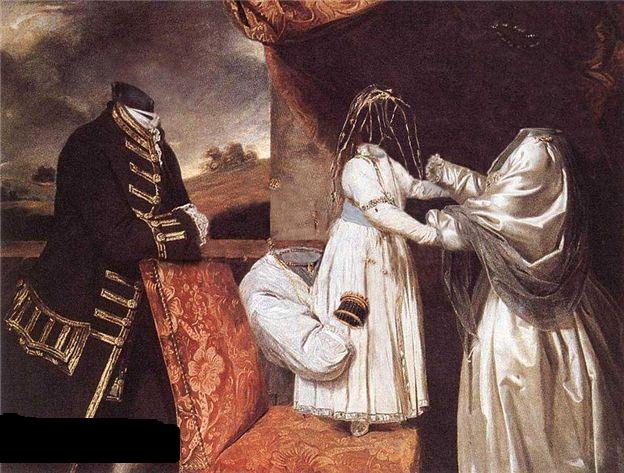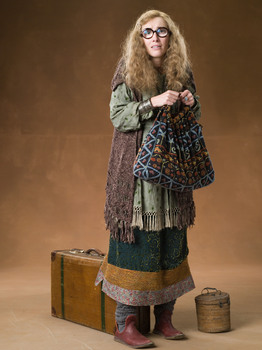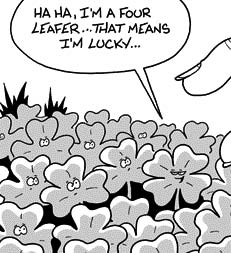
Most pofátlan leszek. Vettem a bátorságot, és beillesztettem ímhol alant egy teljes Rigó utcai, középfokú angol nyelvvizsga teljes anyagát. A nagyon komoly kérdésem a mostanában fel-fel lángoló különféle viták fényében, ugyanakkor megfontolásával, hogy kinek mi a véleménye konkrétan erről a nyelvvizsgatípusról. Szeretjük, ajánljuk, vállalunk-e felkészítést rá, mint magántanárok, mindenkit lebeszélünk róla, legszívesebben aláaknáznánk az épületet, stb, stb. Mivel jó magam itt vizsgát nem tettem le soha, és arra gondoltam, hogy ilyen devianciával más is élhet még esetleg ezen a bolygón, jöjjön maga a vizsgafeladatsor:
KÖZÉPFOKÚ NYELVVIZSGA (ITK-'RIGÓ UTCA')
1.
Teszt (50 pont) Válassza ki a négy válasz közül az egyetlen nyelvtanilag, stilisztikailag megfelelõt.
1. She left the room quietly … wake me.
A) not to B) so as not to C) so that not to D) so that she not
2. The jewellery … by two men wearing green helmets.
A) is said to have been stolen B) was told to be stolen C) was said to steal D) believed to be stolen
3. … he'd done everything he could.
A) He told B) He is said C) He tells me D) He said
4. Do you … ?
A) like that I leave now B) like to me to leave now C) insist that I leave now D) need that I leave now
5. 'Is he coming to the party?' '… .'
A) I hope not B) Yes, I think it C) No, he doesn't D) I hope that he does
6. You … come so early. The concert starts at 10.
A) needn't have B) mustn't have C) didn't need to D) needn't
7. … she talks, I won't let her get away with that.
A) Whatever friendly B) However kindly C) However interesting things D) However friendly
8. 'Could I use your phone for a minute? '… .'
A) Yes, you could B) Sure, go ahead C) I'm afraid you couldn't D) No thanks
9. If I … the truth, I would keep quiet about it.
A) would be telling B) were said C) were told D) have told them
10. … the horrible weather, the children went out on an excursion.
A) Despite of B) Although C) In spite of D) Regardless
11. He is not … patient … his wife.
A) as // than B) more old // than C) as // as D) so // than
12. He might be … a tailor … a teacher. It's hard to tell.
A) either // nor B) neither// or C) both // or D) either // or
13. The baby was born … the night.
A) while B) during C) at D) on
14. My uncle is the best bus driver … I have ever met.
A) what B) that C) which D) whose
15. He asked me to give him some … .
A) good advices B) advicing C) advice D) pieces of good advices
16. I had to wait for about an hour at the station as the train was … .
A) late B) in late C) lately D) too late
17. I was rather tired so I … down for an hour.
A) lied B) lay C) laid D) lain
18. If I …, I wouldn't have failed.
A) 'd studied more B) 'd have studied more C) had studying D) were studied
19. I heard the neighbours … about our new car.
A) talking B) to talk C) have talked D) had been talked
20. It's very sad he … in his class.
A) doesn't feel himself well B) doesn't feel himself good C) doesn't feel good D) doesn't feel well
21. … was Joe who was the first to do this essay.
A) It B) That C) Whom D) Which
22. This is … I call real dedication.
A) that B) what C) which D) -
23. Thank you … to my birthday party.
A) to come B) coming C) for coming D) about you coming
24. He wasn't much of a cook, … ?
A) was he B) doesn't he C) didn't he D) wasn't he
25. It never occurred … me to work as a teacher.
A) for B) to C) in D) with
26. … had he entered the flat … he realised he'd left his keys in the car.
A) Hardly // when B) No sooner // then C) Scarcely // than D) No sooner // when
27. He should … what to do.
A) have being told B) have been telling C) have to be telling D) 've been told
28. The … family was there at the performance.
A) whole of B) all C) most of the D) whole
29. She was lonely; she had … friends.
A) little B)few C) a few D) not too much
30. This is the first time … such an old car.
A) I buy B) I've bought C) I had bought D) I was bought
31. Both of the boys … talented, but … of them likes talking about their paintings.
A) is // either B)are // neither C) are // both D) are // all
32. Show me the pictures … .
A) you've made B) that you have taken C) which were made D) what were made by you
33. … love and understandig are the two most important things in … life.
A) -- // -- B) the // -- C) -- // the D) the // the
34. He decided … leaving the city.
A) on B) to C) for D) about
35. She joined the class … people.
A) so that she could meet B)so that to meet C) in order that she meet D) for to meet
36. He is … to come with us.
A) unlikely B) probable C) possible D) certainly
37. The paper was … dirty pictures and jokes.
A) full with B) filled from C) full of D) full of with
38. First it was a bit strange, but later he … early.
A) got used to wake up B) used to C) got used to waking up D) was used to wake up
39. He left the concert very early, … was not really polite of him.
A) that B) what C) which D) -
40. I … for hours when he finally arrived.
A) was waiting B) had been waiting C) was waited D) had been waited
41. She asked him to give her … to write her essay on.
A) a paper B) some papers C) paper D) some pieces of papers
42. He … the building.
A) told to me to leave B) told me to have left C) asked that I should leave D) told me never to leave
43. He was rather sad because … his driving test.
A) it didn't manage to pass B) he didn't succeed passing C) he couldn't manage passing D) he wasn't able to pass
44. I … the office when te phone rang.
A) was about to leave B) had nearly leaving C) have just left D) was about leaving
45. He is … that movie.
A) enough old to see B)not old enough for seeing C) not enough olod for seeing D) not old enough to see
46. I was really surprised … you didn't go with him.
A) at B) with C) that D) about that
47. As soon as all the players …, we might start the game.
A) will have arrived B) have arrived C) arrived D) are going to arrive
48. If we … earlier, we wouldn't have got into this traffic jam.
A) left B) have left C) had left D) could leave
49. At the end of that deeply moving film I … crying.
A) couldn't stand B) couldn't help C) wanted D) would have liked
50. He spoke to the students … . A) very friendly B) really friendlily C) in friendly way D) in a friendly manner
Fordítás magyarról angolra (25 pont)
Fordítsa le az alábbi szöveget angolra. Fontos, hogy a magyarról angolra fordítás egy rövid nyelvtani jellegû, leggyakrabban párbeszédre épülõ, egyszerû szavakból fölépített szöveg. Szótár használható a megoldásához (de nem az egyes szavakon van a hangsúly). A 25 pont 40 alpontból tevõdik össze, ebbol a 40 pontból vonódnak le a súlyos (-1,5), a közepes (-1) és az enyhébb (-0,5) hibák és a 40-ból elért pontot átszámítják 25-re.
- Mi szólnál, ha moziba mennénk ma este? Ezer éve nem voltunk már szórakozni. - Jó ötlet. De milyen filmet szeretnél megnézni? - Hát, legszívesebben valami vicceset néznék. És te? - Én nem bánom, egészen addig amíg/de csak úgy ha feliratos a film - Mi értelme van feliratos filmet nézni? Szerintem, sokkal nehezebb követni mert két dologra kell koncentrálni egyszerre. - Ez igaz, de én mindig rengeteg új szót tudok így megtanulni, és ráadásul mindeközben jól érzem magam - Azt hiszem igazad van. A baj csak az, hogy a legtöbb filmet szinkronizálják pedig elég sokan tudnak már angolul, nem? - Ne aggódj. Manapság legalább kétszer annyi filmet nézhet meg az ember angolul, mint 10 éve. Biztos, hogy fogunk tudni valami vicceset választani. - Na, akkor döntsünk. Hova tettük a mozimusort? Valahol itt kell lennie. - Lehet, hogy a kocsiban hagytam. Megyek és megnézem.
Fordítás angolról magyarra (25 pont)
Fordítsa le az alábbi szöveget magyarra. Az angolról magyarra fordításnál tudni kell, hogy a szöveg eredeti angol újságból származik és szótár használható a feladat megoldásához. A maximális összpontszámból vonódnak le a félreértések vagy le nem fordított szövegrészek (-2-4 pont), a súlyos (-3 pont) és az enyhébb hibák, stilisztikai félrecsúszások (-1 pont). Ügyeljünk a pontos (de azért magyaros) fordításra és fogalmazásra.
LEAPING THE LANGUAGE BARRIER
With the introduction of Europe's common currency, people might begin to wonder if a common European language is in the offing too. German theatre director Karin Beier has an answer, in her polyglot productions of Shakespeare, the director lets the actors, who come from different European countries, speak in tongues - all of them their own. In Beier's production of The Tempest, for example, the magician Prospero invokes the spirits in his native Romanian while Miranda's lover, Ferdinand, expresses his ardent admiration for his love in Polish. Alonso and Sebastian converse in Finnish and Italian, Trinculo mumbles drunkenly in Croatian and his friend Stephano in English. In Beier's new prologue to the play, the seven characters shipwrecked on the island - who turn out to be Brussels politicians - discuss a bizarre joint marketing program to popularize il pomodoro-tomato as an example of how European states can concentrate on their similarities rather than their differences. Beier employs a kind of pidgin European that melts the various languages into one. The message is clear: in Europe, a community of culturally and historically diverse states in which 62 different languages are spoken, misunderstandings are only natural. And can this utopia - the project of the European Union ever be realized? The answer, for Beier at least, is no. The initial consensus on how to sell il pomodoro-tomato quickly disintegrates as national interests take over and the group's European Esperanto gradually reverts to individual languages. But despite the linguistic barriers, Beier's productions consistently attract sellout crowds. It seems her interpretations need no translation.
il pomodoro-tomato: il pomodoro-paradicsom (egy vicces név), ezért hagyjuk meg félig olaszul
Fogalmazás/Levél (15 pont)
A levélírásban max. 5 pont jár a tartalomra (dátum, megszólítás, megfelelo stílus, a szempontok kifejtése), max. 5 pont szókincsre (választékosság, idiómák stb.), max. 5 pont pedig a nyelvhelyességre (nyelvtan, helyesírás, írásjelek stb.). A feladathoz szótár használható.
Írjon fogalmazást levélírási szokásairól kb. 17-20 sorban. Szeret általában levelet írni? Kinek és mikor szokott? Ha nem szokott, miért nem? Mit gondol az e-mailrol, mint az újfajta levélírási módról? Használ(t)-e már e-mailt? Miért/Miért nem? Mik az e-mail elonyei, hátrányai? Hogyan látja a levélírás jövõjét? Írjon levelet barátjának a legfurcsább napjáról a közelmúltban kb 17-20 sorban. Kezdje izgatottan a levelet (mert még mindig a nap hatása alatt van). Hogyan kezdõdött ez a furcsa nap? Mi történt? Ön hogyan érezte magát? Mit tett? Nem tudja, hogy helyesen cselekedett-e ezért kérje meg barátját, hogy írja meg véleményét mihamarabb.
Szövegértés (20 pont)
Olvassa el figyelmesen az alábbi szöveget, majd válaszoljon az utána következo kérdésekre MAGYARUL, tömör, összefüggo mondatokban. A feladat megoldásához szótár használható. Max. 20 pont jár érte; ennek részletezése a megoldásban megtalálható.
HOME SCHOOLING GROWING FACTOR
Interestingly, the number of home-schooled students in the U.S. has more than doubled since 1991. Two significant workplace trends may have helped increase the number of home-schooled students in the 1990s: downsizing and telecommuting. Downsizing resulted in many individuals abandoning corporations altogether and starting businesses of their own, often running them out of their homes. Home schooling appears to be an extension of this entrepreneurial spirit that drives one to do things for oneself. Running a home business made it easier to educate children there. In addition to home businesses, another trend that has made it more feasible to home school is telecommuting, which helps people achieve a better balance between work and family. While strong economic conditions, increased telecommuting opportunities and the growth of home businesses make it easier to start a business, in the end, it is probably the belief that schools are not adequately preparing children for the workplace that is the primary force propelling home-schooling growth. Parents are not the only ones who recognize the shortcomings of the current system of education. Home-schooled students are making major gains in "name" colleges and universities. Last fall, Stanford University accepted 27 percent of applicants who were home schooled, which was almost double the overall acceptance rate. While instances of home schooling are growing in number and it is gaining more acceptance, it is highly unlikely that home schooling will become the norm. Many parents do not have the education or career background that would be necessary for home-schooling success. Others do not have the inclination to undertake such an endeavor. Additionally, there often is a stigma attached to home-schooled children that will keep many parents from deciding to take this route. Some argue that home schooling lacks the socialization and team-building skills that traditional school settings offer. Thus it is vital that any parents choosing to home school their children be properly trained in education theory. It is also important that their children be involved in group activities with others their age so that they can build these critical social skills.
- Milyen hatással voltak a munkahelyi elbocsájtások az otthoni oktatásra?
- Miben segíti az embereket a telekommunikáció?
- Mivel vádolják az iskolarendszert?
- Az egyetemek hogyan reagáltak az otthoni oktatásra?
- Milyen példát hoz fel a szöveg erre?
- Mik a hátrányok és miért nem valószínû, hogy az otthoni oktatás lesz a bevett szokás?
- Milyen szempontokat kell figyelembe venni, ha valaki otthon szeretné oktatni a gyerekét?
MEGOLDÁSOK:
Teszt:
1.B 2.A 3.D 4.C 5.A 6.A 7.B 8.B 9.C 10.C 11.C 12.D 13.B 14.B 15.C 16.A 17.B 18.A 19.A 20.C 21.A 22.B 23.C 24.A 25.B 26.A 27.D 28.D 29.B 30.B 31.B 32.B 33.A 34.A 35.A 36.A 37.C 38.C 39.C 40.B 41.C 42.D 43.D 44.A 45.D 46.C 47.B 48.C 49.B 50.D
Megoldás (fordítás magyarról angolra)
What/How about going to the cinema tonight? We haven't gone out for ages/a long time./It's been ages since we last went out. (It's a) Good idea. But what kind/sort of film would you like to see/watch? Well, I'd rather watch/I'd prefer to watch something funny. What/How about you?/And you? I don't mind, as long as the film is subtitled. What's the point in watching subtitled films? In my opinion/To my mind/As I see it, they are much more difficult to follow because you/one have to/has to/must concentrate on two things at the same time/at a time. That's true, but I can always learn a lot of/lots of/plenty of new words and what's more, meanwhile/during the film I'm having a good time/I'm enjoying myself. I think you are right. The (only) problem is that most films are dubbed even though/although/though quite a lot of people speak English already, don't they? Don't worry. These days/Nowadays one/you can watch at least twice as many films in English as 10 years ago. I'm sure/I'm certain/It is certain that we'll be able to choose something funny. Okay, let's decide then. Where have/did we put the programme? It must be here somewhere. I may/might have left it in the car. I'll go and have a look.
Megoldás (fordítás angolról magyarra)
ÁTUGORVA A NYELVI GÁTAT/GÁTON//A NYELVI GÁT ÁTUGRÁSA Európa közös pénznemének bevezetésével / bevezetése után, az emberek azon tunodhetnek, lesz-e nemsokára egy közös európai nyelv is. A német színházi rendezo Karin Beier-nek már van erre válasza. Többnyelvu színházi eloadásaiban Beier hagyja, hogy színészei, akik más-más európai országból származnak, más nyelveken beszéljenek - méghozzá mindenki a sajátján. Beier Vihar eloadásában például a varázsló Prospero a szellemeket anyanyelvén, románul hívja, míg Miranda szerelme Ferdinand, kedvese iránti kitartó csodálatát lengyelül fejezi ki. Alonso és Sebastian finnül és finnül és olaszul társalognak, Trinculo részegen motyog horvátul, barátja Stephano pedig angolul válaszol neki. Beier a darabhoz írt új eloszavában a hét hajótörött szereplo a szigeten - akikrol kiderül, hogy brüsszeli politikusok - egy furcsa közös marketing tervet vitatnak meg az il pomodoro-paradicsom népszerusítésére, hogy bebizonyítsák, az európai államok képesek inkább a hasonlóságaikra koncentrálni, mint a különbségeikre. Beier egy fajta pidgin európai nyelvet alkalmaz amely a különbözo nyelveket összeolvasztja. Az üzenet egyértelmu: Európában, egy olyan közösségben amelyben kulturálisan és történelmileg különbözo államok vannak/találhatók, és amelyben 62 különbözo nyelvet/nyelven beszélnek, a félreértések (csak) természetesek. És hogy megvalósítható-e valaha ez az utópia - az Európai Unió terve? A válasz, legalábbis Breier számára: nem. A kezdeti egyetértés, hogy hogyan is adják el az il pomodoro-paradicsomot gyorsan elszáll, amint a nemzeti érdekek eluralkodnak/úrrá lesznek és a csapat európai-eszperantója fokozatosan egyéni nyelvekbe megy át. De a nyelvi gátak ellenére, Beier eloadásai állandó kasszasikerek. Úgy tunik, értelmezéseinek nincs szükségük fordításra.
Megoldás (szövegértés)
1. A munkahelyi elbocsájtások segítik az otthoni oktatást (1), mivel az emberekben kialakul a vállalkozó kedv (1), saját üzletet indítanak és inkább hajlamosak a gyereküket otthon tanítani. Ha otthon dolgoznak több lehetoség is van erre (2).
2. A telekommunikáció jobban segíti a munka és a család egyensúlyát (2).
3. Az iskolarendszert azzal vádolják, hogy nem jól készíti fel a gyerekeket a munkahelyekre. (2)
4. Az egyetemek szintén rájöttek az jelenlegi oktatási rendszer hiányosságaira és az otthon oktatott diákok közül sokan kerülnek be jónevu foiskolákra és egyetemekre. (2) A Stanford-ra tavaly osszel 27 százalékuk került be, ami majdnem kétszerese volt az országos felvételi aránynak. (2)
5. Az otthoni oktatás hátránya, hogy sok szülonek nincs megfelelo képzettsége és tudása. (2) Másoknak nincs bátorságuk, hogy egy ilyen nehéz feladatot magukra vállaljanak. (1) Ráadásul az így tanított gyerekeket gyakran megbélyegzik (1). Nem valószínu, hogy ez lesz a bevett szokás mert a gyerekeknek így nincs módjuk szocializálódni, és csoportos kapcsolatokat kialakítani. (1)
6. Az otthoni oktatásnál fontos, hogy a szülo képzett legyen pedagógiából/oktatáselméletbol (2), és a gyerek csoportos fogalakozásokon vegyen részt korosztályabeli gyerekekkel, hogy ezeket a szociális/társas képességeket elsajátítsa. (1)









